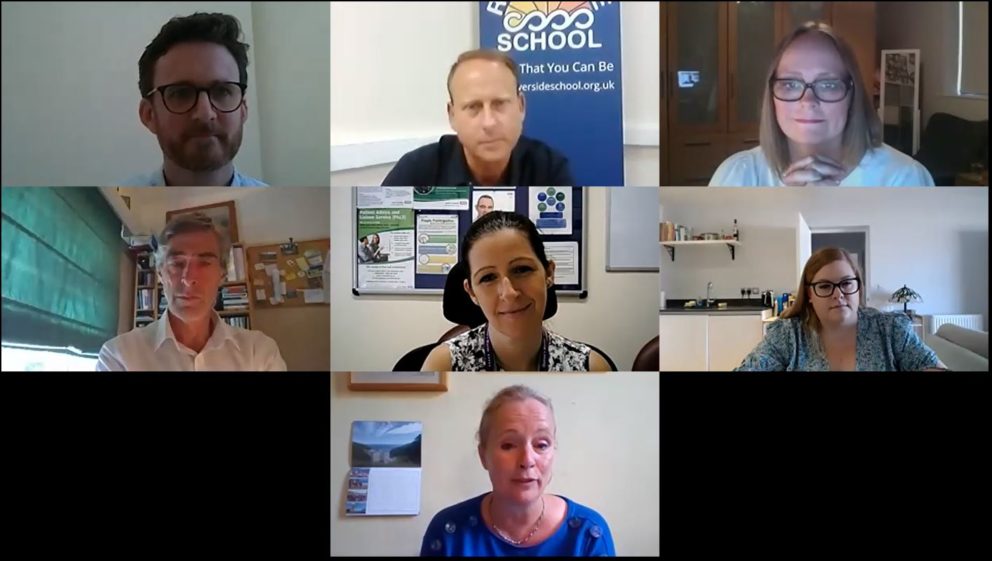Back to School webinar addresses key questions for families of seriously ill children

The need for clear communication between families, schools and health professionals was the key message from WellChild’s ‘Back to School’ online question and answer session with an expert panel from Government, health, law and education today. The online event was produced in association with the South and North Thames Paediatric Networks. You can watch the full recording below.
Vicky Ford MP, the Parliamentary Under Secretary of State for Children and Families at the Department of Education, opened the meeting with an update on the Government guidance for SEND Children.
Minister Ford acknowledged the enormous pressures that are on families with complex needs children at this time but said that the decision to return to school had not been taken lightly and was based on the latest available evidence and that the risk of transmission of the virus in school is low. She said the Government strongly believes that the benefits for children of returning to school outweigh the low risk of the virus for children and young people.
Next there was a Question and Answer session with an expert panel chaired by Matt James, WellChild Director of Communications and Engagement. The panel included:
- André Imich, SEN & Disability Professional Adviser, Department For Education.
- Caroline Barrett, Senior Associate, Irwin Mitchell.
- Steve Solomons, Headteacher at Riverside School in Kent.
- Rebecca Daniels, Community Children’s Matron, East London Foundation NHS Trust.
- Jill Evans, WellChild Parent Ambassador
Is it safe to return?
The panel first discussed how safe is it for vulnerable children to return to school?
They heard a question from Sarah in Surrey who asked: “My son has been shielding and is due back to a mainstream classroom of 33 children. No social distancing [within the class bubble], [and] no masks. Can anyone explain why I should feel confident it will be a safe environment for him?”
André Imich spoke about how the decision to return to school was based on medical evidence and said an awful lot has been learned since March and that data shows children have a very, very low risk of contracting the virus. Considerable guidance has been given to schools so they can provide a safe environment he said and the benefits of going back to school for pupils are enormous. Throughout lockdown many special schools have had children attending full or part time so this would be expanding in September and we could be reassured by the experience of the children who have been in school.
School head Steve Solomons said there has to be open and honest communication between schools, families and medical professionals on this issue to relieve people’s anxieties and he stressed that every child and their situation is unique.
Rebecca Daniels said she could understand parents’ anxiety but that transmission of the virus in schools had been very low and she highlighted the need for individual risk assessments.
Aerosol Generating Procedures (AGP)
Next the issue of Aerosol Generating Procedures (AGP) such as suctioning, was discussed.
The panel heard a question from Victoria in Hertfordshire who asked: What is being done to ensure the guidelines are more applicable and achievable by schools? She cited a couple of issues about the separate rooms needed for AGP being too far from the classroom for children who frequently or urgently need suctioning or Tracheostomy care, or there simply not being a suitable room available within the school for AGP.
Jill Evans talked about the difficulty for her son Noah if he needs suction in the classroom, he would have to be taken to a separate room, perhaps some distance away where his carer would have to dress in full PPE to carry out the procedure – which, under normal circumstances, is done immediately in the class. She said it is confusing how the system is going to work for Noah’s safety and the safety of the rest of the children in the class.
André Imich described this as a challenging issue and said it is an area where we must tread carefully and work together to learn from experience, finding solutions which might vary from one school to the next depending on the environment.
Steve Solomons said we must find a seamless and safe way of providing this support, keeping the child safe and making them feel included in the class.
Rebecca Daniels said she does not think the current guidance on this issue is clear enough and called for it to be reviewed. She called for children to be treated equally whatever their condition and said work in this area should be done slowly to get it right.
Caroline Barrett said much depended on the individual circumstances of each child, such as how often they needed to be suctioned. She suggested families should get the professional opinion of their medical specialist on what was safe and appropriate for them.
Legal duty of parents
Finally, the panel discussed the legal duty of parents regarding sending their children to school.
They heard from Samantha from the West Midlands, who asked: “What are the consequences of not sending my child to school? Although we’re desperate for a break, we don’t want to play Russian roulette with our daughter’s life.”
Caroline Barrett said the legal position is that the Government has said all children should go back to school and parents have a legal duty to send them. Schools are required to report if a child is not sent regularly and parents could be fined as a last resort. But she added that guidance anticipated some circumstances where children could not attend, such as local lockdowns or if a particular child had clinical reasons not to attend. She said parents should speak to the child’s doctor and health professionals. She also spoke about the need for a gradual transition back to school, the need for risk assessments and for the school and parents to speak to each other to address concerns.
André Imich said the message was that children have had a difficult time and that some would need additional support. He said there was a need to be sympathetic, supportive and have an ongoing dialogue. Schools needed to be supportive of families, particularly in the first few weeks of children returning to school.
Jill Evans emphasised that the situation was tricky for some parents who would feel anxiety about their child going back to school.
Steve Solomons said flexibility is the key for schools and that there must be a recognition that some children will require continued support, at home in some cases. He was clear that he would not advocate families being fined over this issue. All of us want to see children back in school and for it to be safe for them to do so, he said.




